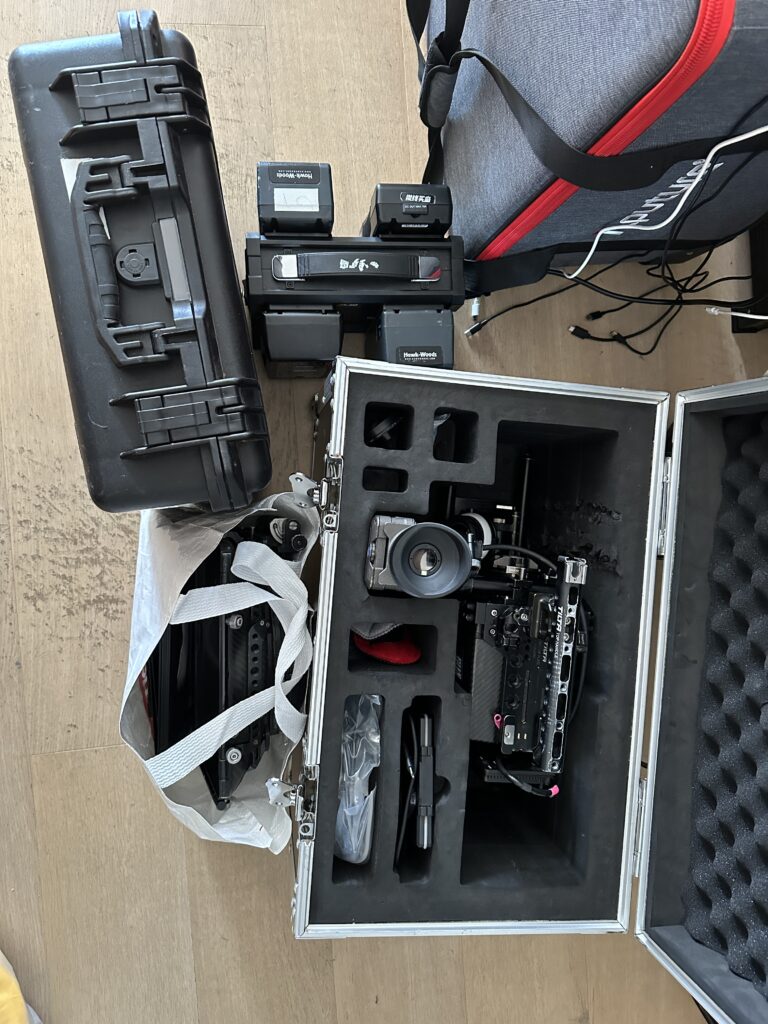If you have any useful suggestions which may help to cut down fraud, please contact us.
__________________________________________________
Insurance documents:
The possession of an insurance document is not a guarantee that the hirer is legitimate.
Insurance companies do not always check clients before issuing certificates and in any case, documents are very easily forged.
This may seem odd but when purchasing a policy from an insurance company, if you tell lies then you simply invalidate the policy. Hire companies want to know that a legitimate client is insured in case of damage or loss on a real job but a policy issued to a fraudster offers no protection whatsoever to the hire company.
When making a decision to hire or not, disregard completely the existence or otherwise of insurance documents as any evidence of legitimacy.
Theft by bogus couriers
Bogus courier theft could probably be reduced by asking to see (and taking a photo of) the driving licence or photographic ID of anyone who collects kit. It is also worth considering taking a photo of their vehicle as standard practice. If the driver/ courier does not have ID don’t release the kit!
Fraud where the hirer claims that equipment lent to him has been stolen:
This is a common tactic which is either insurance fraud, or a delaying tactic which gives thieves time to take kit abroad.
It is particularly infuriating because once that fake crime is reported to the police, the ‘hirer’ is the point of contact for the police because technically they are the injured party. The hire company is not entitled to any information because their issue is viewed as a civil issue with their hirer, not a criminal one.
One way of combating this would be to insist that hirers report all thefts to the Police within 4 hours of reporting them to the hire company, with a verifiable crime number, and a copy of the report. Failure to do so will result in non return of items being reported as theft, and full details being posted on this website. Hirers could be notified that falsely reporting a theft to the Police is a serious criminal offence, that of Perverting the Course of Justice, and will add many years to the original sentence if they are caught and prosecuted. If the procedures above became standard procedure, the practise of ‘theft by theft’ could be significantly reduced.
Google Search:
A search on Google for the name of an individual can provide a wealth of information. For instance, there may be a Facebook update from a hire company in another country which details fraudulent activity. In addition, this site is often indexed by Google, so anyone mentioned here will appear fairly quickly.
Premises (1):
It is worth having a look at the address supplied by the hirer on Google Maps. If the address is incorrect, unusual or non-existent it’s obviously a cause for concern.
Street view is your friend.
Premises (2):
If the address given is a business centre or similar, it is possible that space has been rented on a cash basis, short term, and that the hirer could easily disappear overnight. The phone number and fax could also be leased from the centre and hence be untraceable. If in doubt, call the reception for the business centre and ask.
Website:
It’s possible to see who owns the website using a whois lookup although increasingly those details are masked. If the owner of the site is at the same address as the hirer, that is a good, although not conclusive sign of legitimacy. If the site has only been registered for a very short time, and the hirer claims to have been in business for much longer, this would be grounds for caution.
References from other hire companies:
Large scale thieves are now routinely renting and returning small amounts of equipment from a number of hire companies, so as to build up a track record, before suddenly making a huge order and disappearing. When enquiring about other hires when following up references, it might be worth asking about the scale of previous rentals.
Check the hirer’s email domain
There have been repeated series of attempted frauds, where the ‘hirer’ says he is from the BBC, or ITV, or some other large organisation and gives an email address which, is clearly not genuine: eg itvproduction@london.com. More sophisticated thieves could, however, register a domain, (eg itv-london.com) for £5, and such addresses might be harder to spot. Here are the domains of major hirers, which fraudsters are more likely to impersonate. If the email addresses don’t match, there is a good chance that this is an attempted fraud. Thanks to the members of the Xhire list who provided this information. Another tactic, used in the Jacuzzi Films scam, is for a fraudster to find a dormant company, and register a domain which could plausibly belong to that company, and use it to send emails.
If you are contacted by a new client, see if there is a website on the email domain, and also check when it was registered and by whom, using a whois lookup. The table below lists the legitimate domains of some major hirers.
| Organisation | Domain |
| BBC | @bbc.co.uk |
| ITV | @itv.com |
| Thames | @thames.tv |
| STV | @stv.tv |
| C4 | @channel4.com |
| Granada | @granadamedia.com |
| ITN | @itn.co.uk |
| Sky | @bskyb.com |
| Endemol | @endemoluk.com |
| IMG Media | @imgworld.com |



